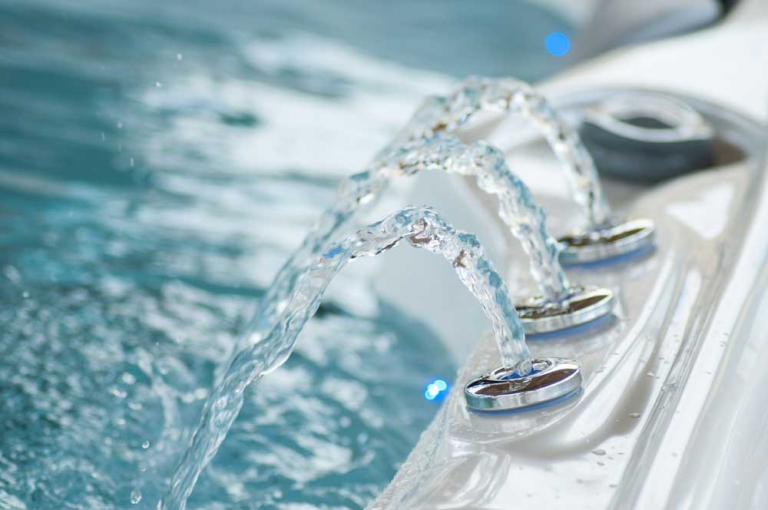When choosing a hot tub, one of the things buyers will consider is the type of their jets. The two common ones are the air jets and the water jets. It is usually a tough choice due to a lack of a better understanding of how the pair differs. Consequently, it becomes hard to determine what is better between air jets and water jets. That’s why we have a detailed discussion to help you choose between air therapy jets and their water counterparts. Read on to understand the advantages and disadvantages of the two types, weigh them and decide the best choice for you.
Pros and cons of air jets
If you choose air jets, here are the advantages and disadvantages to expect;
Pros of air jets
The advantages of air jets are as follows;
- Since these jets don’t require high-voltage power outlets, you can conveniently use a 110-120V, thus saving you the cost of installing another one.
- Besides, the jets’ voltage is quite low, thus saving you additional electricity costs.
- These jets are cheaper than their water counterparts
- You can enjoy your hot tub for long periods because air jets don’t hit the skin and body hard
- You can also get air jets with over 200 jets around your hot tub, which isn’t the case for water jets
Cons of air jets
The disadvantages of air jets are as follows;
- Unfortunately, hot tub water cools fast if using these jets because of the air it draws from its surroundings, yet the system doesn’t heat it.
- It gets too noisy to even talk in an air jet hot tub
- Air jets offer relatively weak massages since their bubbles don’t act on one’s body directly but are found throughout the hot tub water.
Pros and cons of water jets
If you settle for water jets, the advantages and disadvantages include the following;
Pros of water jets
You will enjoy several benefits if you buy water jets which include;
- Water jets are strategically located at the hot tubs’ seats and backs, making them suitable for targeted and effective massages
- The hot water and air is effective in relieving stress and tension
- The water jets release steam at high speed but low pressure, thus acting on your body directly and effectively for deep massage enough to tackle muscle pain excellently
Cons of water jets
As you enjoy the pros of water jets, be ready for their disadvantages. They include the following;
- If you choose a hot tub using water jets, you will spend a lot of money since its price will be around 15 to 25 times higher than the air jets’ cost.
- Besides the initial cost, it also applies to maintenance and replacement costs. For instance, replacing a single water jet can cost you between $75 and $200, which is quite high, especially if you have more than one jet to sort.
Air jets vs. water jets: Which one is better?
Besides varying advantages and disadvantages, air and water jets have differences that can help you determine the best option. As the name suggests, air jets use air to give you a relaxing sensation and other effects, whereas water jets use water for these results.
Their working mechanism also differs. For instance, a water jet releases warm water and air. The locations of these jets are also strategic, thus allowing you to target specific areas that need the massaging effect. Thanks to the high pressure at which the hot water reaches your body, water jets are the most suitable option for any aching joints or muscles, especially your lower back. That’s why it is popular among athletes to help them soothe aching muscles and relieve stiff joints after a race or exercise. All you need to do is place it strategically. When using your water jet hot tub, it is advisable to turn off the heater for the water to cool down quickly.
On the other hand, air jets blow air into the water tub, thus massaging your body. The air aspect makes its massages relatively gentle. Therefore, using the hot tub for leisure and relaxation becomes a perfect choice. It is okay for the heater to be on when using air jets.
Conclusion
From the above discussion, air and water jets are different and can’t be used interchangeably. They have different advantages and disadvantages. Due to their sensations, air jets suit certain situations better than water jets and vice versa. Therefore, it is up to you to weigh them and decide, depending on what works best for you. Think carefully before settling for either to avoid disappointment later on. If you aren’t sure about the best choice, regardless of this information, HomeBuddy can help, given the expertise of its professionals in this area. Both options are great, but only if you make the right call.

